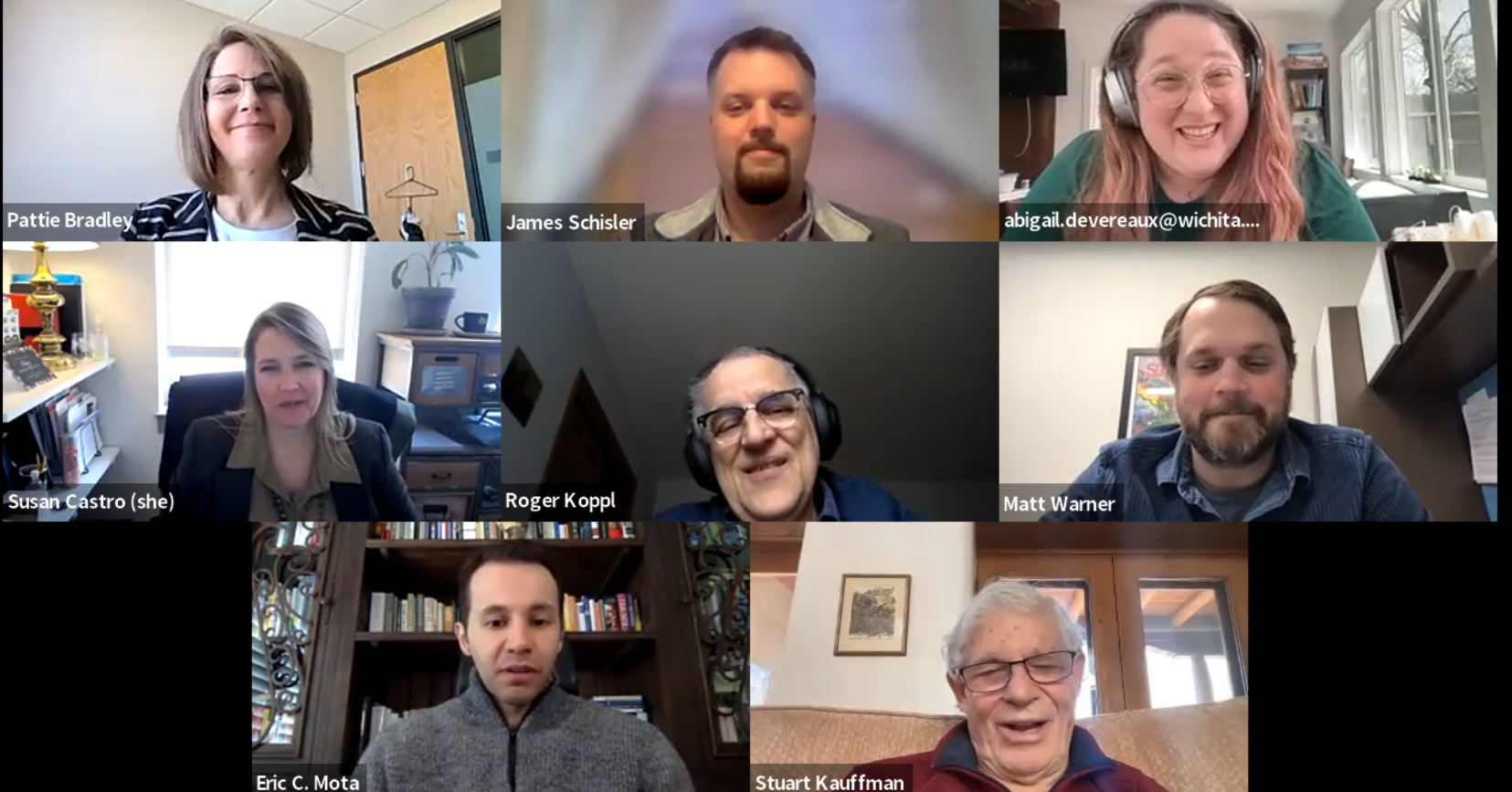
On March 31, 2023, the Institute for the Study of Economic Growth was proud to host a Virtual Talk with Dr. Stuart Kauffman. Kauffman is a renowned theoretical biologist. Originally a medical doctor, he has spearheaded several disruptive new theories including Nobel-worthy contributions in fitness landscapes, gene regulatory networks, the theory of affordance,s and the theory of the adjacent possible. Also a MacArthur Fellow and a Trotter Prize winner, Kauffman has published game-changing books like Origins of Order: Self-organization and Selection in Evolution and At Home in the Universe: The Search for the Laws of Self-Organization and Complexity.
Kauffman’s talk focused on “The Inevitable Anthropocene and Our Choices Now: Prolegomenon to a Next Axial Age”, and was free and open to the public. Attendees were able to join virtually from anywhere in the world, and included faculty from leading universities, students and more. After a brief introduction from ISEG Research Fellow Abigail Devereaux, Kauffman laid out the axial ages so far in history.
Next, Kauffman covered his theory of the adjacent possible. It suggests that in any given system, the possible future states of the system are limited by its current state and the set of potential future states that are “adjacent” to it. He illustrastrated the concept by talking about all of the potential uses of a screwdriver or engine block as examples. This complex concept has important implications for understanding the evolution of complex systems, from biological systems to human activities such as economics and innovation.
According to the theory, the adjacent possible is a set of all the possible future states that could arise from the current state of a system, but that are not too far removed from it to be accessible. In other words, it represents the set of all the new possibilities that could emerge from the current state, given the constraints and opportunities of the system. Kauffman argues that complex systems, such as living organisms or the economy, are not fully determined by their past or present states, but instead are shaped by the possibilities of the adjacent possible. The system evolves by exploring new adjacent possibilities, which can lead to novel behaviors, functions, or structures.
The theory of the adjacent possible has important implications for fields such as biology, economics, and innovation. It suggests that innovation and creativity do not arise solely from random chance or individual genius, but rather emerge from the interaction of diverse elements in a system, and the exploration of adjacent possibilities that are accessible from the current state.
Next, Kauffman laid out the inevitable Anthropocene given the incredible growth the world has seen. While the growth has lifted millions out of poverty and improved health, we cannot keep growing exponentially on a finite planet. He argues we find ourselves in the anthroponce now with the increased rate of climate change, extinctions, soil degradation, and pandemics.
During the talk, Kauffman also explored the evolution of science itself. He argued that understanding these complex systems requires a new scientific worldview that embraces interconnectedness and emergent properties. In fact, he argues a third transition in science is needed to go beyond Newton and Quantum mechanics. Surpassing the Anthropocene reuqers a spiritual transformation and a transformation of practice; we are of nature, not above nature. Finally, Kauffman spoke about global soil regeneration and the opportunities available currently to confirm some recent astonishing results.
After the talk, there was a Q&A session where Kauffman addressed questions from the audience. The event provided a unique opportunity for individuals interested in economics, theoretical biology, complex systems, and the philosophy of science to engage with a leading expert in the field and learn more about the latest developments in scientific research. ISEG faculty and staff were also in attendance to help add additional context to the conversations and guide the conversation.
Attendees to the session were especially excited to engage with Dr. Kauffman on a variety of topics. Overall, the virtual talk with Stuart Kauffman was an insightful and thought-provoking exploration of the frontiers of scientific inquiry and the challenges of understanding the complexities of the world around us.
You can watch the full presentation via the video below:


